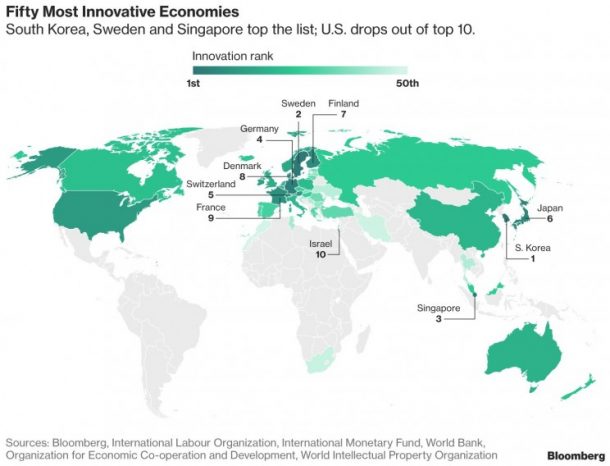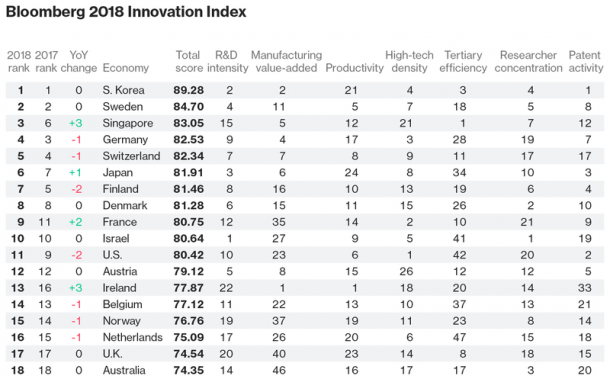According to a recent report in the 2018 version of the Bloomberg Innovation Index show the revised innovation ranking and the US is no longer in the top ten. Bloomberg started generating the index six years ago as it is a global leader in assessing the business and finance dynamics guiding the local economy. This is the first time the US has fallen out of the top ten spot.
A total of seven criteria are used to evaluate countries: productivity, high-tech density, research and development (R&D) intensity, value-added manufacturing, post-secondary, or tertiary, education-efficiency, researcher concentration and patent activity.

The most prominent changes in the index this year were:
- Singapore takes the third position, while South Korea and Sweden continue to hold onto the first two spots.
- Israel makes the 10th spot and is the only non-European/East Asian country besides Singapore to make it.
- Turkey made improvements and moves up 4 spots to the 33rd position.
- South Africa and Iran enter the top 50 after 4 years.
- The US drops down to 11th spot.
The US was already on the 9th spot in the innovation ranking and was dangerously close to the edge of top ten. The reason it dropped its rank is the decline in the education efficiency category as well as in the value-added manufacturing category even though it ranked much higher than other in productivity.

Offering a sobering, and not very optimistic outlook on the future of the US, Robert D. Atkinson, president of the Information Technology & Innovation Foundation in Washington, D.C. shared his interpretation of the numbers: “I see no evidence to suggest that this trend will not continue. Other nations have responded with smart, well-funded innovation policies like better R&D tax incentives, more government funding for research, more funding for technology commercialization initiatives.”


